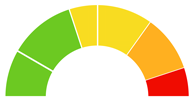Description: The Hunk Companion plugin for WordPress is vulnerable to unauthorized plugin installation/activation due to a missing capability check on the /wp-json/hc/v1/themehunk-import REST API endpoint in all versions up to, and including, 1.8.4. This makes it possible for unauthenticated attackers to install and activate arbitrary plugins which can be leveraged to achieve remote code execution if another vulnerable plugin is installed and activated.
CVE-2024-9707
CVSS Score: 9.8 (CRITICAL)
EPSS Score: N/A
Risk Score: N/A
Risk Score based on CVSS score and EPSS. This score is for reference purposes and is not internationally recognized.


Mitre ATT&CK Technical v15.1
T1053.002 – At
Technical Analysis & Mitigation Measures
1. Technical Attack Analysis:
– Attackers can exploit the vulnerability in the Hunk Companion plugin to gain unauthorized access to the WordPress site by exploiting the missing capability check.
– By sending crafted requests to the vulnerable REST API endpoint, an attacker can install and activate arbitrary plugins on the WordPress site.
– Once a malicious plugin is activated, it can lead to remote code execution (RCE) if the attacker uses a plugin that contains exploitable vulnerabilities.
– The exploitation can result in the complete compromise of the web application, allowing attackers to modify, steal, or delete data, and potentially take control of the underlying server.
– The attack can also facilitate lateral movement within the network if the compromised WordPress site has access to other internal resources.
2. Mitigation Measures:
– Update the Hunk Companion plugin to the latest version (1.8.5 or later).
– Implement proper capability checks for REST API endpoints.
– Limit REST API access to authenticated users only.
– Regularly review and audit installed plugins for vulnerabilities.
– Employ web application firewalls (WAF) to filter and monitor HTTP requests.
– Disable unused or unnecessary plugins to reduce attack surface.
– Monitor logs for unauthorized API access attempts.
– Conduct regular security assessments and vulnerability scanning on the WordPress site.
The content above is generated by AI. Please review and consider carefully before applying!
Reference Links
https://github.com/WordPressBugBounty/plugins-hunk-companion/blob/5a3cedc7b3d35d407b210e691c53c6cb400e4051/hunk-companion/import/app/app.php#L46
https://plugins.trac.wordpress.org/changeset?sfp_email=&sfph_mail=&reponame=&old=3166501%40hunk-companion&new=3166501%40hunk-companion&sfp_email=&sfph_mail=
https://wordpress.org/plugins/hunk-companion/
https://www.wordfence.com/threat-intel/vulnerabilities/id/9c101fca-037c-4bed-9dc7-baa021a8b59c?source=cve
Vendor - Produce - Version
Disclaimer
The content on this website is automatically sourced from external websites such as the National Vulnerability Database (NVD), GitHub, and other security-related sources. This content is for reference purposes only, and we are not responsible for the accuracy or integrity of the information linked or displayed from these sources.
